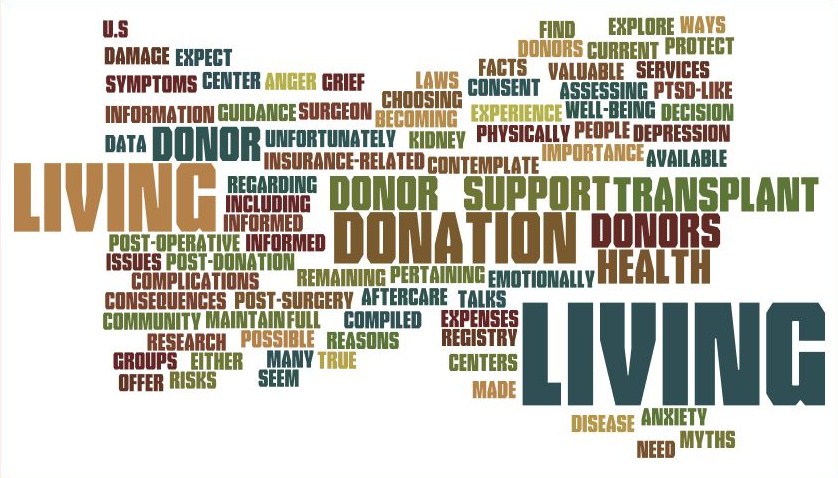
Living donor transplants represent one immediate way to reduce the number of people on the national transplant waiting list in the U.S. Living donor transplants have become a common procedure in transplant centers around the world. For potential transplant recipients, living donor transplants often mean very high success rates and excellent outcomes. Why? Living kidney donors are generally in excellent health. There is also very short cold ischemic times for living donor transplants.
The most frequently donated organ is a kidney but other organs can be donated such as a lung, a lobe of a lung or a lobe of a liver. Not all centers participate in living donation of all organs. UNC only participates in living kidney donor transplants at this time.
As a living kidney donor coordinator I see lots of folks and talk to even more about possibly donating a kidney. There are many things to consider as you make this life-changing decision. The resounding thread that runs deeply through all programs is that of the donor’s safety. Since living donation is not considered a required surgery, there is extraordinary emphasis put on your evaluation to keep you safe. In general, the donor candidate must be fit. That means that body mass index (BMI), your health history, your family’s health history, your past medical and surgical experiences, and your lifestyle will come under close scrutiny during the process. All of these items plus the medical information collected during numerous tests come into play when being considered as a potential donor. You can call the transplant center that the recipient is being evaluated at. If you don’t have a specific donor, you can find programs in your state with a simple web query or you can go to the Scientific Registry for Transplant Recipients for specific information about every transplant center in the U.S.: http://www.srtr.org/
That being said, who can be a donor? The answer is simple: everyone can! Even if you are ruled out to donate while living, you can and should still register to be an organ and tissue donor to donate after you die, either through the North Carolina DMV or online at DonateLifeNC.org. Either way it is a win-win situation for some fortunate person in need of a transplant.
[Image from LivingDonor101.com]